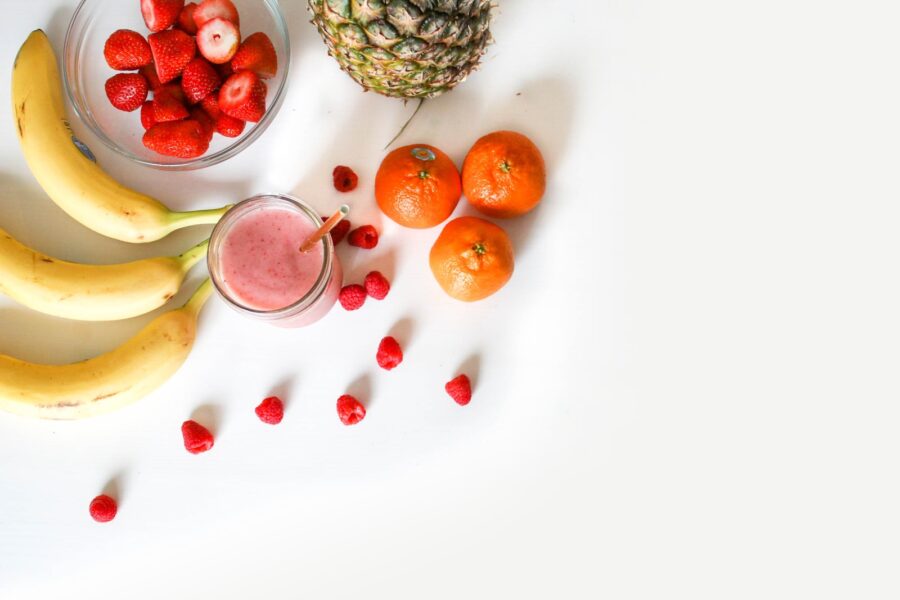You will be aware that what you eat influences your health. But are you aware of how much influence your dietary choices have on your brain health and mental performance throughout any given day?
You are probably aware of the fact that drinking lots of coffee can make you slightly ‘hyper’ or grabbing chocolate bars from a vending machine or from an onsite cafe can have the same effect. Yet are you aware that you can actually eat your way to a better mental performance at work?
Simply having some basic knowledge of nutrition can impact how you feel throughout a working day and can also stop you having ‘lows’ after lunch. The way your brain functions is deeply connected to your nutrition and your gut. This will also affect your mood and your energy around the office. Here are five important factors to consider when choosing your breakfast and lunch choices to enhance mental performance and keep your brain sharp and focused on completing your daily tasks…
Breakfast and lunch choices – things to consider:
1. Keep Omega 3 (especially the essential fats EPA/DHA) high in your diet by eating three portions of oily fish every week. If you don’t like oily fish then you may want to take high quality supplements instead however eating the actual fish is always better.
EPA and DHA fats are essential to brain structure, function and development. They help protect the brain from cognitive decline and are important for memory; in fact all aspects of brain function rely on these fats. Choose your oily fish carefully though. Wild Alaskan salmon is the cleanest (least polluted) and is preferable to farmed salmon. Mackerel and sardines (tinned or fresh) are also good sources. Avoid tuna with its high mercury levels which has been found to contribute to increased irritability and memory loss.
2. Avoid Omega 6 oils which are pro-inflammatory to the body and brain (EPA/DHA are anti-inflammatory). Watch out for foods cooked in vegetable, sunflower, safflower, corn and soya oils. They also create oxidative stress and free radicals that damage cells especially when they are heated. This can have a major impact on energy production throughout the brain. If you are eating at a workplace cafe don’t be afraid to ask what oil, if any, your meal has been cooked in and then make a mindful choice.
3. “Go to work on an egg”. This may be old fashioned government health advice that went out of fashion, but it is sound advice due to the high choline content in eggs. Eggs are a brilliant fast food, boil, poach, scramble or make an omelette. They make a fabulous quick breakfast or hard boil some eggs and take to work with you. Eggs are also perfect for a quick breakfast solution if you are pushed for time.
Choline is an important nutrient for brain health. It’s called an essential nutrient as the body cannot make sufficient amounts for its daily needs so it must be obtained from the diet. The British Medical Journal published a report in 2019 asking “Could we be overlooking a potential choline crisis in the UK?” Choline is required to produce acetylcholine, a neurotransmitter that helps to regulate memory, mood and intelligence. It is also needed for proper brain function and development. A lack of choline has been shown to lead to poor cognitive performance.
400mg is needed every day and animal foods contain more choline per unit weight than plant sources. 2 large eggs provide 300mg; a serving of cod, beef or chicken provides 85mg ; a serving of broccoli provides; a serving of sunflower seeds or brown rice provides 20mg.
4. Take care of your gut microbiome by aiming to consume “10 a day” AND 40 different plant foods every week! Forget that ‘five a day’ tag line, you need more!
A healthy gut supports a healthy brain. We know there is a direct link between the gut and the brain through the enteric nervous system. It provides a two-way flow of communication, each one influencing the other. The gut and brain communicate through a series of neurotransmitters. One of the most well known is serotonin which is associated with calmness and happiness. A lack of it can cause anxiety. Most serotonin in the body is produced in the gut – far more than in the brain!
Certain strains of gut bacteria are associated with memory, others help regulate the stress response, others help enhance the production of new neurones required to keep the brain sharp. You do not need to be vegan/vegetarian but aim to consume plenty of vegetables, herbs and spices as the plant compounds feed the beneficial bacteria helping them to thrive and grow. Find ways to include some at each main meal.
5. Are you getting enough magnesium in your diet? Commonly known as Nature’s Tranquilizer it helps to activate the parasympathetic nervous system to keep you calm and feel in control. Increased states of anxiety may suggest you’re not getting enough. Increased magnesium intake can help with memory and cognitive function.
Alcohol, caffeine (in coffee and fizzy drinks) and tannins (in tea) hinder magnesium absorption so keep these to a minimum and avoid drinking these close to mealtimes.
The best sources are dark green leafy vegetables (broccoli, kale, Brussel sprouts, Bok choy, Swiss chard, collard greens, rocket). You really should be eating two portions every day. I cup size contains c.150mg – one third of your daily amount. Nuts and seeds deliver good levels too, especially almonds, cashews and Brazils. A 25g serving contains c. 75mg. Pumpkin seeds deliver 100mg in just 2 tablespoons. Flax and chia are good sources too.
If you can adopt some of these suggestions into your life, you will feel your mental performance and energy lift, leading to enhanced workplace productivity. Paying attention to what you eat and making that a habit will bring benefits beyond belief and your body will thank you for it.
Caroline Peyton
Caroline Peyton of Peyton’s Principles is a qualified nutritional therapist and naturopath with clinics in Wiltshire, the Cotswolds and online. She has a specialism in gut health and is often asked to support teams and c-suite executives around nutrition and performance in the workplace. She runs retreats for women of all ages to help them consider nutrition in their every day lives, helping them with recipes and around small changes they can make on a daily basis to improve their wellbeing through nutrition. She is a regular media commentator offering hints and tips around all aspects of nutrition, wellbeing and how nutrition can help with all kinds of conditions including diabetes, menopause, IBS and many others.



